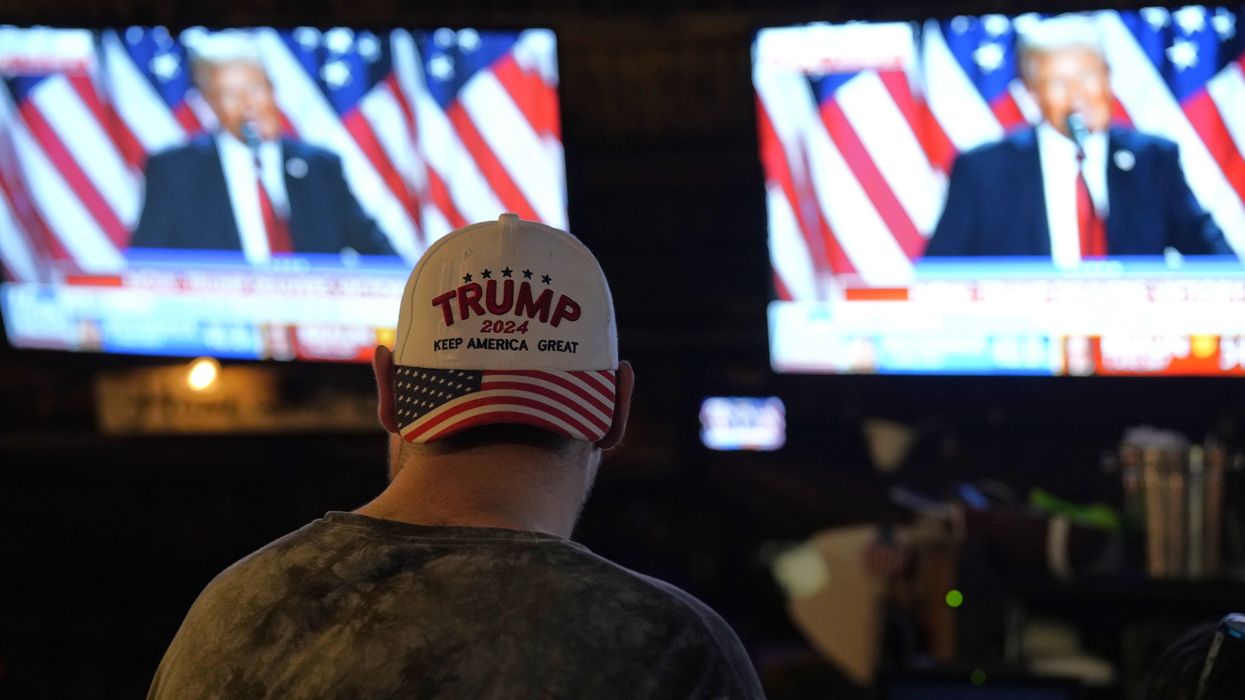Johnson is a United Methodist pastor, the author of "Holding Up Your Corner: Talking About Race in Your Community" and program director for the Bridge Alliance, which houses The Fulcrum.
Whether your candidate won or lost, the campaign's intensity and the high stakes have likely left you feeling emotionally drained. It's natural to wonder what comes next and how to process the results in a way that promotes social cohesion and personal well-being.
As a nation, we've just demonstrated our remarkable resilience and commitment to democracy. Tens of millions of Americans from all walks of life, in various ways, made their voices heard. We've fulfilled our civic duty, and now that the votes are cast, it's essential to take a deep breath, reflect on the outcome, and think critically about how to move forward to strengthen our communities and uphold our shared values.
The first step in processing the election results is to acknowledge the validity of the outcome. In a democracy, sometimes our preferred candidate wins, and sometimes they do not. While it's natural to feel disappointed, frustrated or even fearful if our candidate loses, it's crucial to respect the electoral process and the will of the American people. Doing so means accepting the results and committing to a peaceful power transfer.
At the same time, we must also recognize the genuine divisions that the campaign laid bare. Issues like the economy, health care, racial justice and our response to the historic dissolution of reproductive rights, with voters holding passionately different views. These disagreements are not insurmountable, but bridging them requires empathy, open-mindedness and an earnest effort to seek common ground. The outcome of this election will undoubtedly shape the country's direction for years to come. However, it's important to remember that our power as citizens doesn't end when we cast our ballots. We continue to advocate activism and hold elected leaders accountable.
How can we process the election results in a way that promotes social unity and personal well-being? Here are some practical strategies to consider:
- Practice self-care: Make time for activities that nourish your mind, body and spirit. Acts of self-care might include exercise, meditation, spending time with loved ones or engaging in a hobby you enjoy. It's okay to take a break from the news if it's feeling overwhelming.
- Seek out diverse perspectives: Rather than only interacting with those who share your views, make an effort to understand the experiences and opinions of others. This doesn't mean you have to agree, but listening with empathy can help build bridges.
- Get involved in your community: Look for ways to make a positive difference locally. This could involve volunteering, joining a community organization or attending city council or school board meetings. Change often happens from the ground up.
- Advocate for the issues you care about: Your voice still matters regardless of who holds office. If there are causes that stir your passion, your actions can make a difference. Contact your elected representatives, sign petitions, and participate in peaceful protests. Your advocacy can shape the future.
- Find the helpers: As Mr. Rogers famously advised, look for the people working to improve things. There are countless everyday heroes all around us striving to create positive change. Their stories can be a powerful balm for our spirits.
The days and weeks ahead may be challenging as our nation navigates the election aftermath. There will likely be celebrations, protests, legal challenges and calls for unity. Through it all, it's essential to remember that we are part of a larger community, and we are stronger together than we are divided.
To paraphrase former Secretary of State Hillary Clinton's 2016 concession speech, "We must accept this result and look to the future. We owe the president-elect an open mind and a chance to lead." Likewise, if our preferred candidate has won, we must extend the same grace to those who may be disappointed or fearful.
Dare to engage in civil discourse, listen to each other's perspectives and work towards a common understanding. The test of democracy is not how we act when we win, but how we respond when things don't go our way. By choosing empathy over anger, engagement over apathy and hope over despair, we can help build a more just, equitable and accessible nation for all its people. We voted. Now, let's come together and get to work.




















 From left to right: Gabriel Cardona-Fox, Bud Branch, Joe Concienne
From left to right: Gabriel Cardona-Fox, Bud Branch, Joe Concienne 